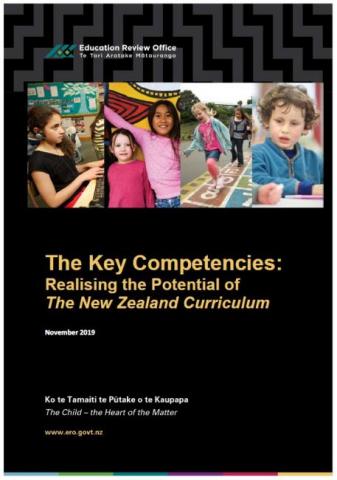The Key Competencies: Realising the Potential of the New Zealand Curriculum
Published: 22 Nov 2019
This is a companion report to Developing Key Competencies in Students Years 1 to 8. It explores current thinking about the importance of building the capabilities of young people. It outlines what the Key Competencies (KCs) are, why they are important, New Zealand’s journey with thinking about the nature and potential uses of KCs, and where this development fits in the international context.
- Audience:
- Education
- Parents
- Schools
- Content type:
- Research
- Topics:
- Key competencies
- Curriculum
- Learning






